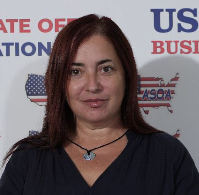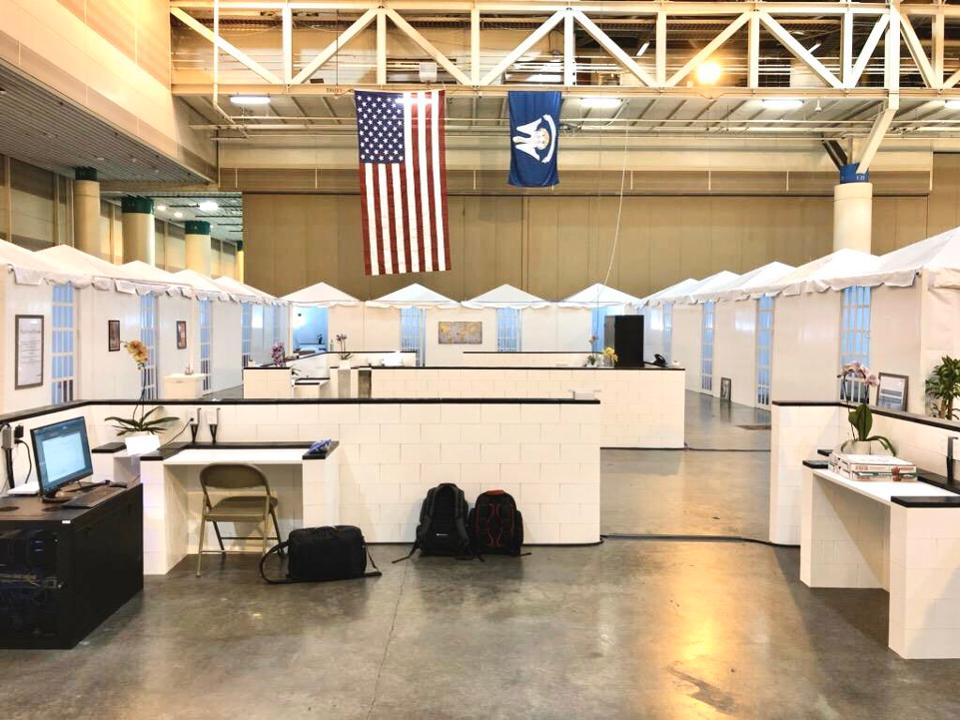On the day of the October 7 terrorist attack, Sigal Gafni, an entrepreneur and resident of the southern Israeli town of Arad, was at the Association of the U.S. Army (AUSA) summit in D.C.

“When I returned to Israel, it was immediately clear to me that my business will now face a period where I won’t be able to work,” she said.
Gafni predicts that the war will impact all Israeli businesses exporting hi-tech services to the U.S.
Shock to the tech community – Israeli-American startups
A part of the U.S.-Israel tech ecosystem, Cornell Tech was launched in 2017 in cooperation with the Technion–Israel Institute of Technology, supported by more than $600 million in gifts from various donors. This massive land-grant institution spans 12 acres on Roosevelt Island in New York City.
“The events of October 7th shocked our tech community,” said Fernando Gómez-Baquero Ph.D., Director of Runway and Spinouts, an academic commercialization program. The initiative manages a portfolio of startups with investments from the Jacobs Technion Cornell Institute.
According to Gómez-Baquero, 16 out of 104 Cornell Tech’s startups have roots in Israel.
“After a period of shock, our companies continued with their mission, and are doing the best they can to lead with examples of humanity and kindness,” he said.

Startup challenge: Cyberattacks and mobilization
Israel’s tech industry is facing numerous challenges, such as cyber attacks and workforce reductions as employees are mobilized for military service.
“We, in Israel, are every day under the threat of cyber attacks, which has become an integral part of the war as terrorists wage war against us,” says Sigal Gafni.
The country’s cybersecurity sector, which is one of the world’s biggest, with more than 20,000 employees, isn’t only dealing with domestic attacks. Many U.S. startups and established organizations, including the FBI, outsource projects to Israeli firms.
Microsoft, Intel, Palo Alto, and CyberArk each employ around 1,000 cyber professionals in Israel, with most jobs in research and development.
The ongoing conflict is what made Israeli cybersecurity and defense technology flourish, experts believe.

“Startups are created from potential problems,” said Ari Goldman, Director of Economic Affairs at the Israeli Consulate in Miami, and who is supporting Israeli startups in their U.S. expansion.
According to Goldman, there are no other startup ecosystems with such contributions from the military and related national security threats.
Is now the time to avoid or invest?
“Many Israeli startups are unprepared to deal with the current crisis and are struggling to find investors,” said Karina Rubinstein, a venture partner at InNegev, an incubator fostering Israeli ClimateTech startups.

“Our own activity has practically stopped and we are focusing on helping out wherever we can with an emphasis on the south of Israel,” she added.
In the midst of the conflict, some Israeli startups moved their headquarters to the U.S. According to reports, Miami is one of their primary destinations.
“When it comes to Israeli startups, there’s a lot of enthusiasm, not just from the government but also from the general public in Miami,” said Goldman, adding that newcomers are attracted by Miami’s infrastructure, a big Jewish community, and opportunities in such sectors as hospitality and tourism.
According to Gómez-Baquero of Cornell Tech, the investors’ long term vision has not changed. “We continue to help great people from all backgrounds create solutions for the most pressing problems in the world,” he said.
Viktoria Kanar, the founder of Re-Fresh, an open innovation platform for the fashion and textile industries, said the impact of the region’s instability on relationships with American investors is still unpredictable.

“So far, our contacts in the U.S. have not been affected, but it’s too early to tell, Kanar said.
“Israelis are known for their resilience. Some of the biggest investments in Israeli companies have been made during wars.”
One case that proves her point is the recent acquisition of an Israeli startup, called Talon Cyber Security, by California-based Palo Alto Networks for $625 million. Launched in 2021, Talon employs 130 people, 85 of them in Israel and the rest in the U.S.
“Israeli startup valuations tend to fluctuate, and they are now very reasonable,” said Goldman. “So a number of VCs and family offices in Florida are very bullish when it comes to Israel. Investors are getting a really good deal, especially with the companies that are already established in the U.S.”
Rewrite and editing by Victoria Zavyalova and John Varoli








